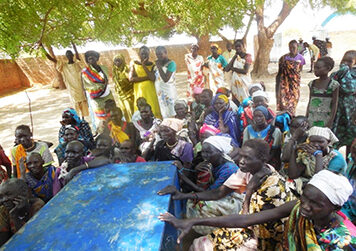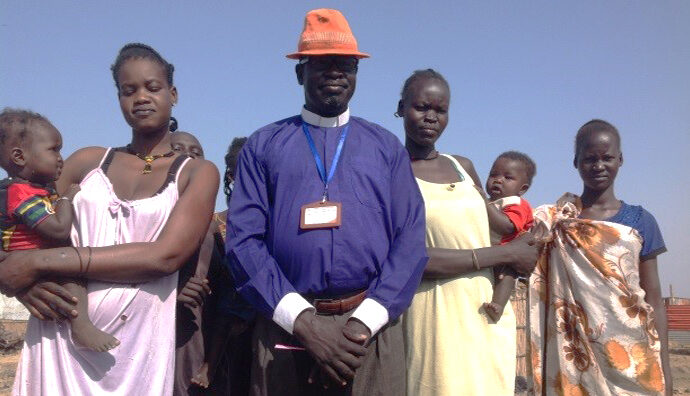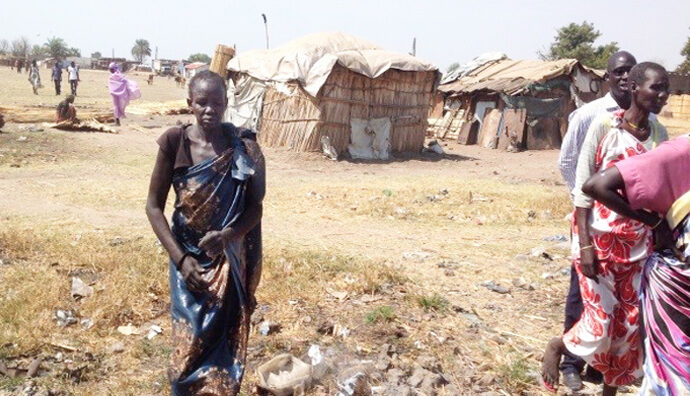ABM Archive Website
THIS WEBSITE CONTAINS ARCHIVE MATERIALS FOR HISTORICAL REFERENCE ONLY
For up-to-date information, including our latest appeals, news, and resources, please visit our current website.
Update: East Africa Famine Response
 |
| IDPs in Rubkona, South Sudan. © SUDRA 2017 |
30 June, 2016 – ABM’s Partner, the Episcopal Church of South Sudan and Sudan (ECSSS) and its development arm, Sudanese Development and Relief Agency (SUDRA) have been working together with local authorities and other humanitarian agencies to deliver emergency relief aid to the Internal Displaced Persons (IDPs) in Rubkona in the Diocese of Bentiu (part of former Unity State).
During March this year, SUDRA Programme Manager Patrick Mulu assisted with an assessment in Rubkona, the county seat of North Liech State, where many people fled due to insecurity caused by the civil war in South Sudan. Many of the IDPs come from Mayom, Leer, Kwnie, Makine, Agog, Gwit and other areas which have been suffering from food insecurity since June 2016.
It is estimated that about 90% of the IDPs in Rubkona are women who have lost their husbands due to the war. There are many women, children and elderly in desperate need of food relief aid. The assessment found that there is a need to wet feed children who have been orphaned as malnutrition is a major concern.
The IDPs are living out in the open or sharing shelter with relatives and friends and surviving by collecting fire wood and wild plants.
An insight into the harsh conditions faced by the women was given by the Regional Mothers’ Union officers. They reported that the gardens are too dry to produce food, and therefore women are walking further afield to try to get wild fruits in order to have something to put on the table. However, often when this happens, the women are raped by soldiers or other armed groups of men. So not only do they have the famine to contend with, but also concern for their own safety.
Other challenges include lack of infrastructure requiring air-drop by plane which is expensive and often hampered by lawlessness; youth resorting to stealing from others due to lack of supervision and insufficient food available; and the issue of hygiene.
Some positives have been the setting up of a demonstration farm to help people with kitchen gardens and the installation of a grinding mill so that IDPs and returnees in Rubkona and Bentiu towns can grind sorghum used to make bread and porridge.
SUDRA advises that the second phase of the relief effort is focused on providing cooking and eating utensils, mosquito nets and blankets for the returnees and IDPs. Providing the mosquito nets will hopefully reduce the spread of disease and illness.
The United Nations has recently stated that “the situation across the crisis-torn country remains dire, as the number of people struggling to find food each day has grown from 4.9 million in February to six million today – the highest level of food insecurity the young nation has ever experienced.”
Please continue to support ABM’s East Africa Famine Response so that our Partner can deliver much needed humanitarian aid to the people of South Sudan.
 |
| IDPs with the Bishop in Rubkona, South Sudan. ©SUDRA 2017 |
 |
| IDP housing in Rubkona, South Sudan. © SUDRA 2017 |
< Back


